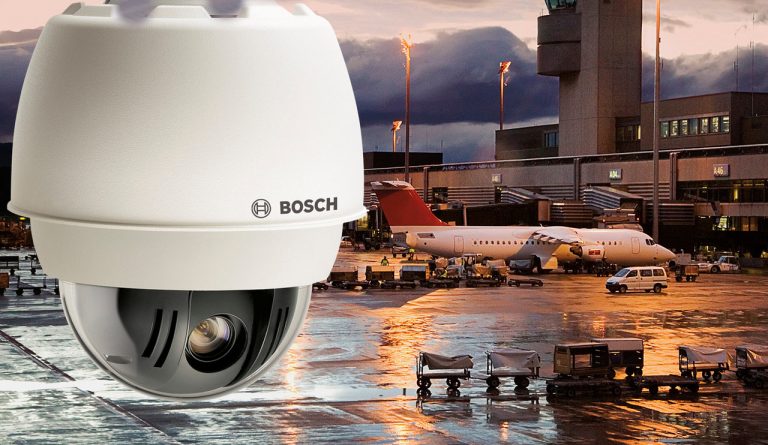|
November 2020
AutomatedBuildings.com
|
[an error occurred while processing this directive]
(Click
Message to Learn More)
|
Cameras
are watching malls, office buildings and grocery stores to check if
people are wearing masks and keeping social distancing.Today, people
are driven by fear to accept privacy invasions to let facial
recognition AI make these checks remotely. What happens after we are
done with this new Covid normal? The genie is out of the bottle and is
not going back. Not willingly.
Malls are installing cameras with facial recognition to check if a
person is wearing a mask. The mall company has installed cameras
watching us and is collecting data and watching the dashboard of
visitors flowing through their buildings. Facilities managers must have
watched the initial pilots nervously to see how many people are turned
away and how often the facial recognition technology fails for people
of darker skin tone or wearing a different hat or glasses. Companies
have gone past their reluctance to adapt technology and made the
investment in the technology system and the edge device watching us.
There are jobs and processes tied to these technologies working now
during covid times.
What happens after we have covid under control? What can the cameras
watch next once they stop tracking for masks? The double-edged sword of
technology is that it costs money to get set up and it will cost money
to dismantle it. Companies will find that it is cheaper to find new
uses for the same technology systems in buildings.
After years of waiting for buildings to become automated, and watching
their slow progress to do this with the right ROI focused on energy
efficiencies and remote management of building logistics, Covid has
justified the ROI and brought cameras and AI and data with it to
buildings everywhere in schools, offices, airports and malls. All of
this collects data and is waiting with technology systems deployed with
compromised privacy and ethics.
If covid justified stopping every person to check for masks and
watching employees to ensure social distancing, will the post-covid
world accept being stopped and counted and watched inside buildings
after that?
As Prof.Virginia Dignum says Responsible AI is about the combination
of acceptance from technology, society and ethical standards.
Technology is not going anywhere as the initial investment has already
been amortized. The societal justification that we got from covid will
be gone with covid. What will be left is questions about ethics before
we find new applications of these AI technologies.
In the post-Covid world, the real question we should ask ourselves is
how do we go from technology trying to find a new problem to solve
after covid to adapting our decision making to be data-driven and
ethical simultaneously.
I see this not just for technology and data but the infrastructure and
mind shift when an AI is pushed back by regulation for being unethical.
Is ethics in technology going to stay in this state of entropy led by
regulation only? The never never world is calling us to embrace ethics
in technology as we accelerate its adoption.
AI ethicists are growing in number and speaking about Ethical
standards. There are several AI Ethics standards evolving, and many new
job roles evolving for ethical and responsible AI globally. It is the
perfect time for us to take a step back and re-imagine the post covid
world and what being connected means for us. Can we build autonomous
buildings such that we can be smart about our mobility and not be
tethered to an office space while maintaining the social aspect of
work? Can we use AI to serve us to reduce inefficiencies instead of
automating to replace our jobs? Can we do this in a fair and equitable
way?
"UIB
and Bosch are 2020 Singapore International Chamber of Commerce (SICC)
Awards finalists with their "Creating Connected Buildings with
Conversational IoT” solution. This solution helps devices come to life
by allowing us to chat with them using Whatsapp." One of their customer solutions was to get Bosch cameras in
airports to watch lines (queues) outside coffee shops to tell us which
shop will get us food fastest as we rush through transit in airports.
Imagine what would you like to ask that camera watching your office or
warehouse?
 source: Bosch.
source: Bosch.
Travel and socializing seems so far away today, but when covid is gone,
those cameras are not going away. So instead of watching our faces, let
us make them watch the world for us to make our lives easier and more
productive and fun.
Author bio Sudha Jamthe is a Technology Futurist and CEO of
IoTDisruptions who mentors business leaders with Capstone projects to
solve industry AI problems at Stanford Continuing Studies and online at
DriverlessWorldSchool.
[an error occurred while processing this directive]
footer
[an error occurred while processing this directive]
[Click Banner To Learn More]
[Home Page] [The
Automator] [About] [Subscribe
] [Contact
Us]
 source: Bosch.
source: Bosch.